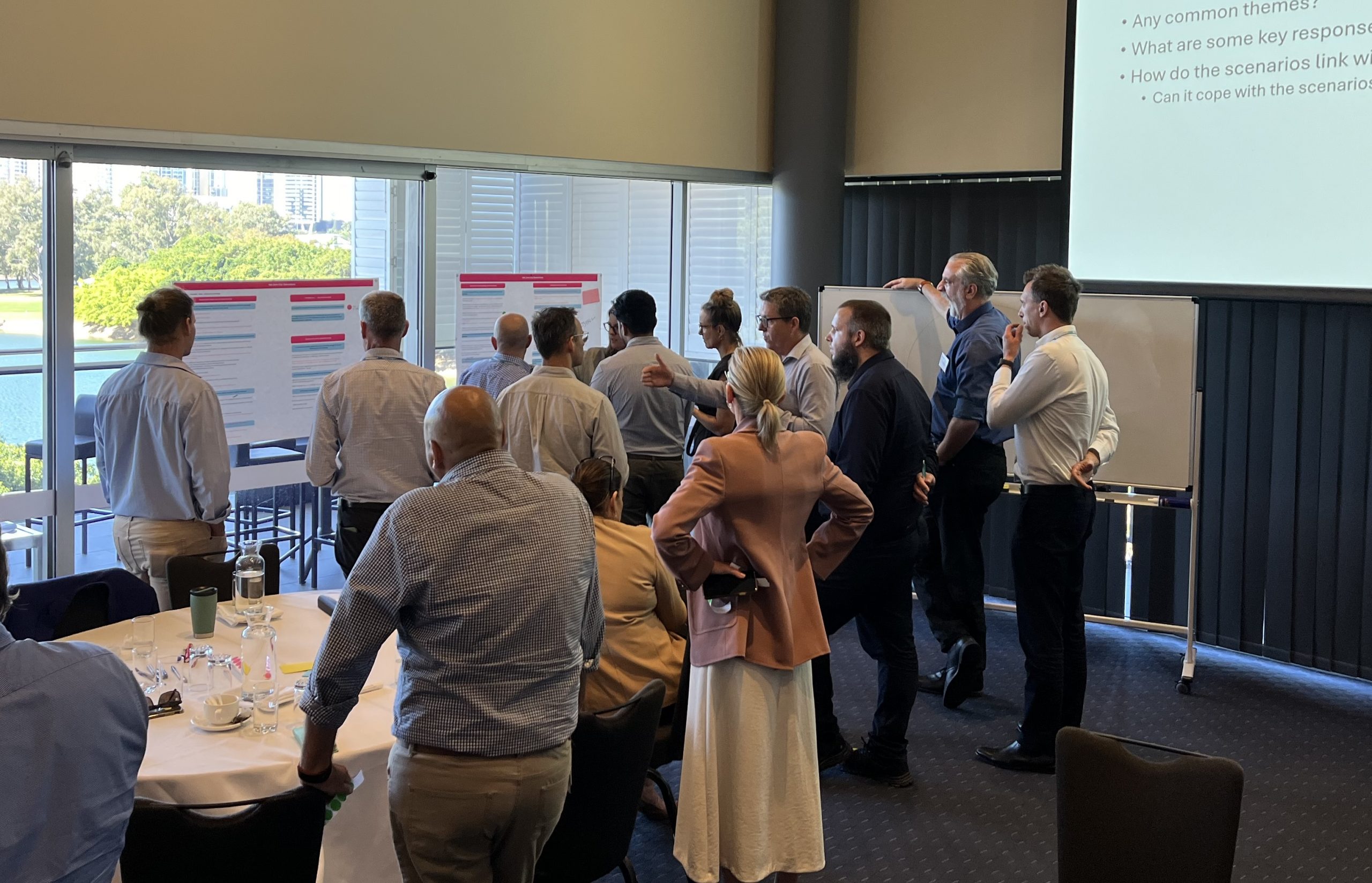30 Sep 2024
When getting yelled at is worth it: Facilitating conflict
While facilitating a range of community-led discussions recently, RMCG Principal and engagement specialist Claire Flanagan-Smith was reminded of the tough conversations that go hand in hand with resolving complex issues. Claire shares her thoughts and learnings on the role of a facilitator when tensions arise.
RMCG has been around now for 35 years, working with rural, regional and peri-urban people on a wide range of projects. What I’ve found is that we are drawn to working on the hard stuff. It is challenging, but it’s what makes the work most meaningful, and it’s where we feel we can make the most difference.
Take, for example, the ongoing energy transition in Australia. In communities where renewable energy infrastructure is set to be built, opinions can vary dramatically between and within regions.
For parts of the community or farm enterprises seeking economic diversification, renewable projects are often welcomed as opportunities for revitalisation. They might see wind farms, solar farms, and other renewable initiatives as lifelines, providing jobs, income, and a path to economic sustainability.
But in other areas or enterprises, the introduction of renewable infrastructure is met with resistance. The opposition is not necessarily rooted in a rejection of renewable energy itself, but in concerns about loss of value, land use changes, aesthetics, scepticism about government intervention, or concerns about gaining little from a project that cuts a path through their land.
Understanding competing perspectives
One of the most challenging aspects of our work is the constant need for compromise. Every project – no matter how beneficial in the long term – requires navigating a web of competing interests, fears, and values. The bigger the project, the more difficult the task.
As facilitators, we might find ourselves working between what developers or government agencies want and what communities want or need.
Often, this is the point at which we find ourselves getting yelled at – because these are high stakes.
We are listening to people who are devastated by changes to the place that they love. They are fearful of what it will mean, not just for them, but for generations to come. And we are also listening to people – sometimes the same people – who are deeply anxious about the scale of change, and the speed required to meet challenges like climate change, biodiversity loss and rural decline.
It is our role as facilitators to weather these moments, within reason, using them as opportunities to more deeply understand the issues at play. Indeed, facing the anger can lead to better insights that, in turn can lead to better outcomes for all.

Navigating the tough conversations
Recently, I was listening to a distressed person in a community drop-in centre. She said to me, “This is immoral. How can you work on this? How do you live with yourself?”
While it’s not the first time I’ve had that question, I’ve been turning it over in my head since. The truth is that I can see, from her perspective, why I shouldn’t sleep at night.
But a facilitator’s role isn’t to give each party what they want.
While that would be pleasant, even the most cursory imagining shows it would be impossible. The conflict arises because there are no easy answers or ways to give everyone what they want.
On issues of climate change, we hit brick walls because the scale of the challenge is so significant that government goals and community needs and desires can be fundamentally different.
Our role as facilitators is to navigate these different perspectives, supporting progress for everyone – whether it’s bringing the developer closer to building good projects, the government closer to policy that better supports regional communities, or the community closer to achieving outcomes that are positive and fair.
It is in this place, beyond the false binary of right and wrong, that we can do our best work. While getting yelled at is uncomfortable, it is usually worth it if it helps to navigate the complexities and compromises, and the deep emotions that come with making progress on complex environmental matters.
It is not easy, but it is essential.
Find out more about our work in facilitation and solving complex issues.